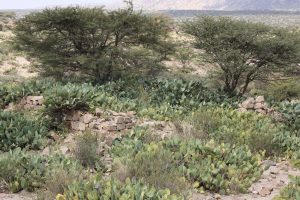The Role of Cultural Heritage in the Basic Needs of East African Pastoralists
In reflection upon the worthy work of Professor Shinya Konaka and his col- leagues, this contribution discusses the idea of “Localization of Humanitarian Assistance”. Several critical questions arise from a humanitarian situation where the needs are assessed: we have to know what people need and what they don’t need. We need to determine coping mech- anisms that need not substituted but rather facilitated. To not undermine and further marginal- ize we need to know what resources, skills and social capital East African pastoralists have and how they are activated, where and when. The discussion is organized in observations from on one hand, archaeological and heritage perspective and on the other, personal experience of refugees and IDP life in the East Africa. It concludes that people do not only need food and shelter to survive and that cultural heritage is a basic human need too. Without the traditional skills and coping mechanisms that are inherent in the cultural values that glue people together, it is dif cult for East African pastoralists to survive. Violence and neglect against people and environment are related to the destruction and neglect of cultural and natural heritage, which are people’s means of livelihood and sources of identity and dignity.

Abbasa Archaeological landscape, Bon, Somaliland
